#Visa Requirements
Photo
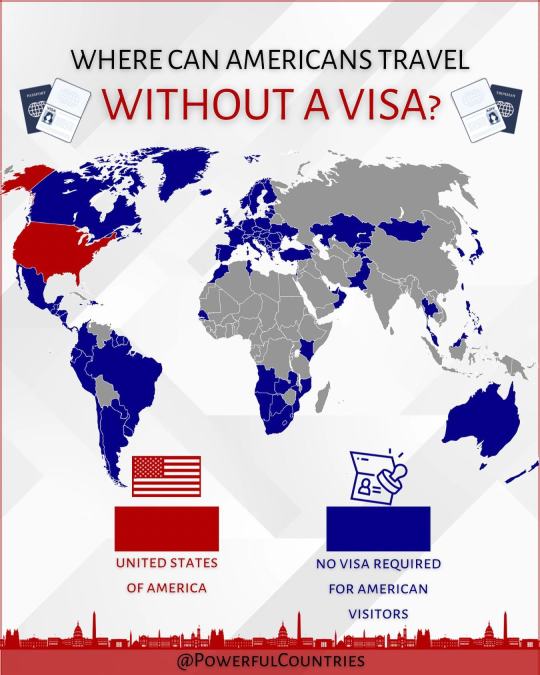
Countries where American citizens can travel to without a visa.
by powerfulcountries
258 notes
·
View notes
Text
Having just tucked his oldest son into bed on Wednesday evening, Sebastian Ibarra walked into his living room at home in British Columbia's North Okanagan district and saw a text from his spouse asking if he'd seen the news.
He did a quick online search and learned that the federal government was reimposing some visa requirements on visiting Mexican nationals to curb the number of asylum claims in Canada and stem the flow of people crossing into the United States.
Taken aback, Ibarra said he thought of his parents and brother — who are supposed to visit him from Mexico this summer.
Full article
Tagging: @politicsofcanada
#cdnpoli#canada#canadian politics#canadian news#canadian#xenophobia#racism#mexico#xenophobia tw#racism tw#visas#visa requirements#asylum seekers#asylum claims#immigration
43 notes
·
View notes
Text
#Online visa application#E visa application#Apply for visa online#visa agency in india#E visa agency#Apply international countries visa#Visa provider company in India#Apply visa online#Apply tourist visa online#visa requirements
2 notes
·
View notes
Text
What is the full procedure for getting a Dubai visa?
What's the process for getting a visa for Dubai?
Get Your Dubai Visa In Just One Day With E Dubai Tourism
Planning a trip to Dubai and need to get your visa quickly? Look no further than E Dubai Tourism! With over 19 years of experience in issuing visas, they offer reliable, fast services that make it easy to get your visa in just one day. Read on to find out how you can benefit from their services and make your trip to Dubai a stress-free experience.
What is a Dubai Visa?
The Dubai visa is a document that allows entry into the United Arab Emirates. It is issued by the government of the UAE and is required for all foreigners wishing to visit or reside in the country. There are different types of visas available, depending on the purpose of your visit. The most common type of visa is the tourist visa, which allows you to stay in Dubai for up to 90 days. Other types of visas include business visas, work visas, and student visas.
A Dubai visa is a document that allows entry into the United Arab Emirates (UAE) for a specific period of time. It is required for all nationals of countries that do not have a visa-exempt agreement with the UAE.
There are different types of visas available depending on the purpose of your visit, length of stay, and nationality. The most common types of visas are tourist visas, business visas, and student visas.
Tourist visas are valid for up to 90 days and can be obtained through travel agencies or airlines. Business visas are valid for up to 60 days and can be obtained through sponsors in the UAE. Student visas are valid for the duration of your studies and can be obtained through your university or college.
If you are planning to visit Dubai, it is important to check if you need a visa in advance. The requirements vary depending on your nationality and the type of visa you require. Once you have all the necessary documents, applying for a Dubai visa is quick and easy.
Eligibility for a Dubai Visa
To be eligible for a Dubai visa, you must:
-Be a citizen of one of the countries listed on the UAE visa website
-Have a valid passport with at least 6 months remaining before expiration
-Have a confirmed airline ticket to and from Dubai
-If you are traveling on a business visa, have an invitation letter from your company in Dubai
-If you are traveling on a visit visa, have an invitation letter from your sponsor in Dubai
-Pay the visa fee online
Process for a Dubai Visa
The process for getting a Dubai visa is quite simple and can be done in just one day. All you need to do is submit an online application form and pay the applicable fees. Once your application is approved, you will be issued a visa that will allow you to enter the country.
There are a few things to keep in mind when applying for a Dubai visa. First, make sure that all of the information on your application is accurate. Your application can be rejected if the information is inaccurate. Second, be sure to include all required documentation. Failure to do so could also result in your application being denied. Finally, make sure to pay the applicable fees. Your application won't be handled if you don't.
Once you have submitted your online application and paid the fees, all you need to do is wait for your visa to be processed. Processing timeframes can change according to the season and the level of demand. However, in most cases, visas are processed within just a few days. So long as everything is in order, you should have no problem getting your Dubai visa in just one day.
How can I get a Dubai Tourist Visa?
You can apply for a Dubai tourist visa in just one day with E Dubai Tourism. We provide a hassle-free application process and our team of experts will guide you through every step of the way. Just provide us with your travel documentation, and we'll take care of the rest.
We understand that getting a visa can be a stressful experience, which is why we are committed to making it as easy as possible for our clients. We offer a wide range of services to help you get your visa in no time, including:
- Fast and efficient online application
- Comprehensive document check
- Expert guidance on requirements and eligibility
- Assistance with completing and submitting your application
With E Dubai Tourism, you can be confident that you are getting the best possible service to help you obtain your visa quickly and without any fuss.
How can I change my visa status?
If you want to change your visa status, you will need to contact the Dubai Immigration and Visa Section. You will need to submit a written request along with your current passport, a copy of your residence permit, and supporting documents. The authorities will then review your case and decide whether or not to grant your request.
If you want to change your visa status, there are a few things you need to do. First, you need to contact the UAE Immigration and Visa Services and let them know that you want to change your visa status. They will then provide you with a list of requirements that you need to meet in order to change your visa status. Once you have met all the requirements, you will need to submit an application for a new visa. The UAE Immigration and Visa Services will review your application and if they approve it, they will issue you a new visa.
What are the types of visas available in Dubai?
There are many types of visas available for those wanting to travel to Dubai. The most common type of visa is the tourist visa, which allows visitors to stay in the city for up to 90 days. Other types of visas include business visas, work visas, and student visas. There are certain qualifications and application procedures for each category of visa.
For those wanting to visit Dubai for business purposes, a business visa is required. This type of visa allows travelers to stay in the city for up to 30 days and can be extended for an additional 60 days. To apply for a business visa, applicants will need to submit a letter from their employer stating the purpose of their trip and provide other required documentation.
Those wishing to work in Dubai will need to obtain a work visa. The requirements for this type of visa vary depending on the applicant's nationality and the type of work they will be doing. Work visas can be valid for up to 3 years and can be renewed. To apply for a work visa, applicants will need to submit proof of employment offer or contract, as well as other required documentation.
Students who wish to study in Dubai will need to obtain a student visa. This type of visa is valid for the duration of your studies, up to 4 years. To apply for a student visa, applicants will need to submit proof of admission into an educational institution, as well as other required documentation.
Here, I told you the best and most trustworthy company that is "E Dubai Tourism - Dubai Visa Apply Online". You can visit the website and easily apply for Visa.
Select your country and type of Visa and enter your personal details like “Gender, Name, DOB, Location, Identity Proof, passport Number, and so on.
If you visit the website then you may simply send me your email address and one of the team members will contact you shortly.
Heartly thanks for reading this answer if this article is useful to you, then we will happy.
#What is the full procedure for getting a Dubai visa?#visa requirements#Visa Service#How to Apply Dubai Visa#Visa Services#What's the process for getting a visa for Dubai?
2 notes
·
View notes
Link
Steps to Obtain a Multi-Year Schengen Visa on Your Indian Passport
#amit kakkar easy visa#schengen visa#indian passport#visa application#multi-year visa#travel documentation#immigration process#indian citizens#visa requirements#europe travel
0 notes
Text
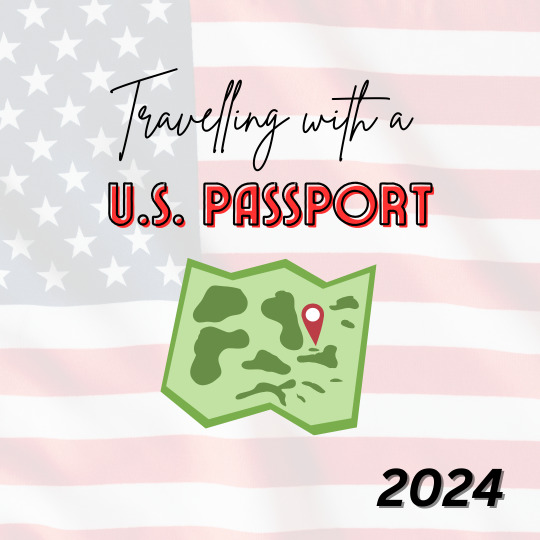
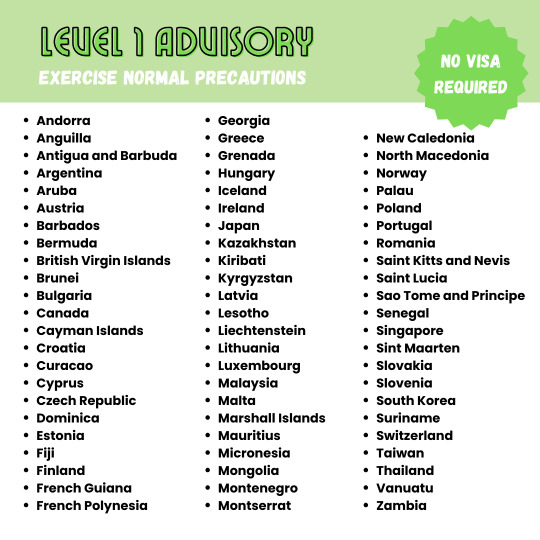
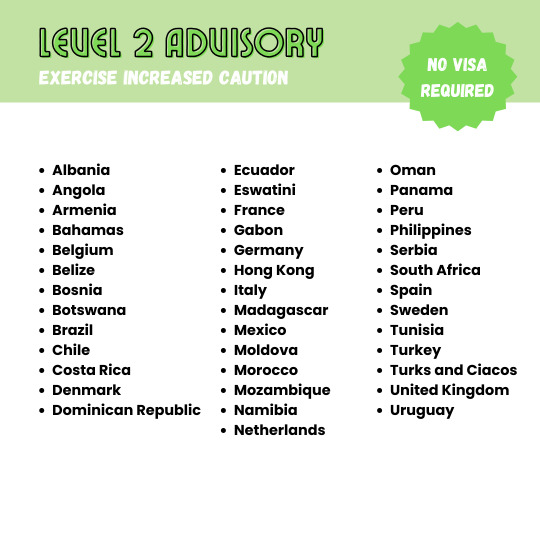
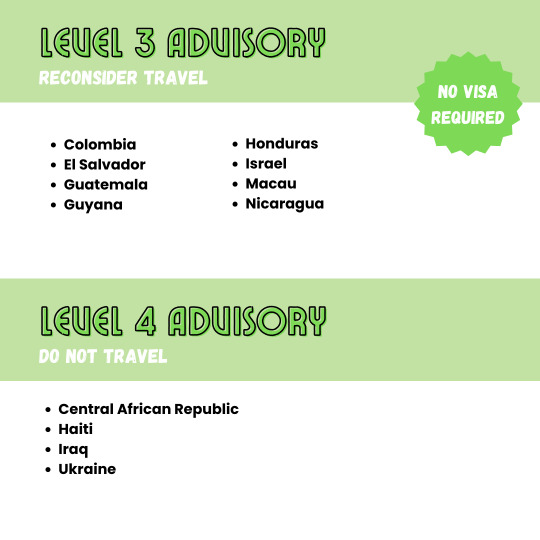
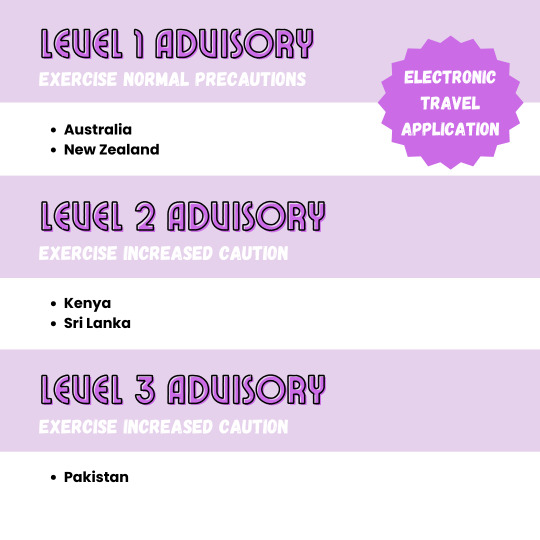
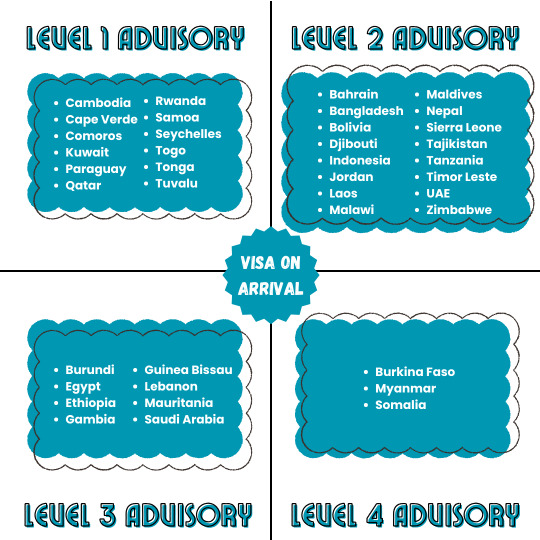
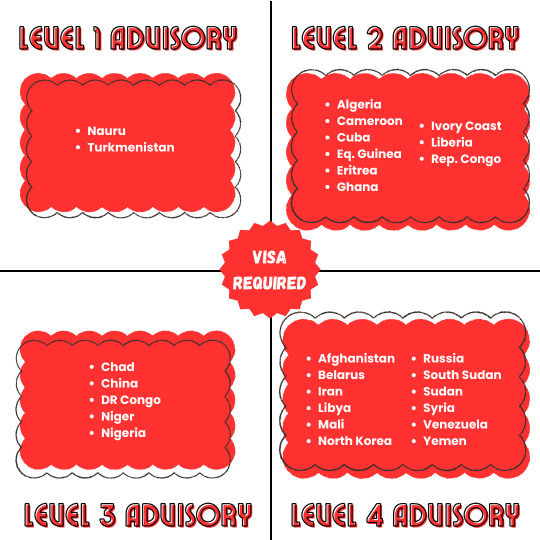
The United States Passport is ranked 7th in the world with 188 countries and territories available to us.
Though this information is subject to change at any moment, this information is updated!
#USA#US#United States#United States of America#US Passport#Passport#Visa#Visa Requirements#Info#Infographic#Instagram#My Upload#My Post
0 notes
Text
Securing Your Japan Visa Online: Essential Guide and Top Reasons to Explore Japan

Hitting the Japanese road? It's important to know the japan online visa requirements whether you're going for a business meeting, to see the cherry blossoms, or to visit one of the country's historic temples. This complete guide will help you figure out what you need to make the application process go smoothly and the 5 main reasons you must visit Japan
Five great reasons to visit Japan:
Cherry Blossoms: Japan is beautiful all year, but Cherry Blossom Season is especially lovely. Beautiful pink blossoms brighten the scene. Spring dinners beneath cherry blossom trees are popular in Japan.
Japanese Food: Sushi, ramen, and tempura are world-renowned Japanese dishes. In Japan, you can try the most authentic versions of these dishes while also discovering new ones.
Hokkaido: The northern island of Hokkaido features beautiful parks, hot springs, and wildlife. The Ainu people, who have their unique culture and cuisine, live there.
City Adventures: Japan's cities are filled with magnificent skyscrapers, delicious food, and exciting activities. Our journey will take us via Tokyo, Kochi, and Osaka, each with its unique charm.
Countryside Peace: Japan offers peaceful countryside to admire nature away from cities. The snow-covered Mount Fuji is a must-see. It is a breathtaking volcano and one of Japan's most famous landmarks.
Do I need a visa to go to Japan?
To visit Japan, many tourists need to have a visa. What you need varies on where you are from, why you are visiting, and how long you plan to stay. Before you plan your trip, you should always check the most up-to-date Japan online visa rules.
How to Get a Japan Visa: A Step-by-Step Guide
No matter why you want to travel to Japan, applying for a visa online takes a few steps and a lot of paperwork. In general, all applicants need these things:
Form to Apply for a Japan Visa: First, fill it out online. Then print it out and sign it.
Valid Passport: Make sure your passport has two blank pages and is good for at least six more months.
Size of a passport Picture: Make sure you follow the exact measurements and background colour rules.
Flight Itinerary: Show how you plan to get in and out of the airport without getting a ticket yet.
Daily Itinerary: Write down what you plan to do each day in Japan.
Proof that you have a place to stay: a hotel reservation or a letter from your host.
Financial Records: Bank records or tax returns are proof that the business is solvent.
Letter of Invitation: If you want to visit someone or go to a business meeting.
Proof of Your Reason for Travelling: Documents that are specific to your type of ticket.
A certificate of eligibility (COE) from a sponsor in Japan is needed for visits that are not for tourism, work, or short stays.
Instructions for the cover letter and photo
A cover letter sent to the Embassy or Consulate tells them about yourself and your trip plans. Japan has rules about the size, background, and expression of the picture you need for your visa.
Documents that are unique to each travel purpose
The papers you need can change depending on why you're going to Japan—for business, pleasure, school, work, vacation, or transit. Make sure you know what kind of visa you need by calling the Japanese Embassy or Consulate.
Invitation and Money Paperwork
If you want to visit Japan for work or pleasure, you need an invitation letter from a host in Japan or a company. If someone is paying for your trip, you will need their promise letter and proof of funds.
ID Card or Certificate of Eligibility
For some kinds of visas, you need a COE, which your sponsor in Japan must get from the Immigration Services before you apply.
Remember that this guide isn't complete; you may be asked to provide more papers.
Check to see if you need to send originals or copies of the papers.
All papers should be written in English or Japanese. If they are not, you should have them translated by a professional.
Discover Japan with Ease: VisaCollect - Your Passport to a Stress-Free Visa Experience!
Do you need help applying for a visa? Visit VisaCollect for help from professionals and make your dream trip to Japan come true. Remember that getting ready for the application process will make it go more smoothly. Have a great trip!
In conclusion
To get your Japan online visa, you need to gather certain papers and carefully follow the application process. You must make sure you me Japan's visa requirements to have a smooth trip, whether you're visiting as a tourist, going to school, or looking to work.
FAQs
How early should I get a visa for Japan?
Start the process three to six months before your trip if possible.
Can I get a visa for Japan online?
Yes, you can apply for some types of visas online. For more information, visit the webpage of the Japanese Embassy or Consulate.
What if I haven't bought my plane ticket yet?
You only need to make a trip plan when you apply; you don't have to buy the ticket.
Should I get a visa to visit Japan for a short time?
It depends on where you are from. Japan has deals with some countries that let them visit without a visa.
If I only have a tourist visa, can I work in Japan?
No, you need a certain type of work visa to work officially in Japan.
What is a COE (Certificate of Eligibility)? Do I need one?
For some kinds of visas, you need a COE, which a sponsor can only get in Japan
.
How long does it take to get a visa for Japan?
Times vary, but you should expect at least 5 working days for tourist visas. For other types of visas, it may take longer.
Can I get a longer visa while I'm in Japan?
Yes, but you need to apply before the end of your present visa.
What should I do if my visa application is turned down?
You can find out why you were turned down and maybe resume with more information.
Do kids need a visa to go to Japan?
Depending on the reason for their trip, all travellers, even kids, need the right IDs.
0 notes
Text
Country-Specific Visa Guides: Requirements and Processes
Navigating the labyrinth of international travel can often feel daunting, especially when it comes to understanding diverse visa requirements. To ease this journey, we've compiled comprehensive country-specific visa guides, providing detailed insights into the requirements and processes for various countries around the globe. From tourist visas to long-term residencies, these visa guides are designed to streamline your travel planning and ensure a hassle-free experience.

Visa Guides for Popular Destinations
Embarking on an international journey begins with understanding the visa requirements of your destination. Our visa guides cover some of the world's most sought-after destinations, each with its unique set of rules and processes:
United States: Known for its stringent visa policies, our guide breaks down the various categories, including B-1/B-2 visitor visas and the Visa Waiver Program.
United Kingdom: From standard visitor visas to specific ones like the marriage visitor visa, we cover the essentials for a UK-bound journey.
Canada: Canada's visa requirements, including electronic travel authorizations (eTAs) for certain nationalities, are detailed for clarity and ease of application.
Australia: We explore options from tourist visas to the Working Holiday visa, catering to different types of travelers.
Schengen Area: Comprising 26 European countries, the Schengen visa has its nuances, which our guide simplifies for potential travelers.
Tourist Visa Requirements
Tourist visas are a gateway to exploring new countries, and understanding their requirements is key:
Application Process: We outline the standard application procedures, which typically include filling out forms, providing financial proofs, and attending an interview.
Documentation: Essential documents usually involve a valid passport, travel itinerary, accommodation bookings, and sometimes a cover letter.
Financial Proof: Demonstrating financial capability to fund your trip is a universal requirement, for which bank statements or sponsor letters are used.
Processing Time: We provide an estimated processing time for each country, helping you plan your application in a timely manner.
Special Conditions: Some nations have specific requirements, like travel insurance or vaccinations, which we highlight for travelers’ convenience.
Work Visa Requirements
Securing a work visa can be the key to a fulfilling career in a foreign country. Here's what you need to know:
Eligibility Criteria: Work visas typically require a job offer from a company in the destination country. We detail the qualifications and experience needed to be eligible.
Application Process: Our guides explain the step-by-step process, from obtaining employer sponsorship to submitting the necessary documentation.
Country-Specific Nuances: Each country has its own set of rules for work visas. For instance, the U.S. has H-1B and L-1 visas, while the UK offers Tier 2 visas.
Duration and Renewal: Information on the validity of work visas and the process for renewals is crucial for long-term planning.
Student Visa Guides
Pursuing education abroad requires navigating student visa regulations:
Admission Prerequisites: Before applying for a student visa, acceptance into an educational institution is necessary. We outline the typical requirements.
Financial Proof: Demonstrating the ability to cover tuition and living expenses is a common requirement. Our guides discuss what counts as valid financial proof.
Health Insurance and Background Checks: Many countries require international students to have health insurance and may conduct background checks.
Post-Study Work Options: We also cover guidelines on work opportunities after completion of studies, which vary significantly from country to country.
Family and Spousal Visa Information
Reuniting families across borders involves understanding family and spousal visa requirements:
Eligibility for Spousal Visas: We explain the criteria, such as proving the legitimacy of the relationship and meeting financial thresholds.
Dependent Visas: For those looking to bring children or other dependents, our guides detail the necessary documentation and application procedures.
Application Process and Timelines: Understanding the processing time and steps involved helps in planning and ensures a smooth application experience.
Permanent Residency Pathways: For many, family visas are a step towards permanent residency. We provide insights into how this transition typically works in various countries.
Business and Investor Visas
For entrepreneurs and investors eyeing global opportunities, understanding business and investor visa requirements is crucial:
Types of Visas: Different countries offer various categories of business visas. For instance, the U.S. has the E-2 Treaty Investor Visa, while the UK offers a Tier 1 Investor Visa.
Investment Requirements: We detail the minimum investment amounts required, which can vary significantly from country to country.
Business Plans and Proposals: Most countries require a detailed business plan or proposal. Our guides provide insights on what makes a strong application.
Duration and Path to Residency: Business visas often have specific durations and can sometimes lead to permanent residency. We explore these aspects for different countries.
Transit Visa Requirements
Transit visas are essential for travelers passing through a country en route to their final destination:
When is a Transit Visa Needed: Not all countries require transit visas, but many do, depending on the traveler's nationality and the length of the layover.
Application Process: We outline the general process for applying for a transit visa, which usually involves less documentation compared to other visa types.
Duration of Stay: Transit visas typically allow a short stay. We detail the allowed duration in major transit hubs.
Exceptions and Waivers: Some countries offer exemptions or transit visa waivers under certain conditions, which we clarify for ease of travel planning.
Long-Term and Permanent Residency Visas
For those seeking to make a foreign country their new home, understanding the pathway to long-term and permanent residency is key:
Qualification Criteria: Each country has specific criteria for granting long-term visas or permanent residency, often based on factors like the duration of stay, employment status, and family ties.
Application Process: Our guides detail the application process, including required documentation, financial proofs, and any necessary legal checks.
Pathways to Citizenship: For many, permanent residency is a step towards citizenship. We explore the typical routes and requirements for naturalization in various countries.
Special Categories: Some countries offer unique categories for long-term visas, such as retirement visas or visas for individuals with exceptional talents.
Visa Extensions and Renewals
Staying compliant with visa regulations often means navigating the complexities of visa extensions and renewals:
Eligibility for Extensions: Not all visas are extendable. We clarify which types of visas typically allow for extensions and under what circumstances.
Renewal Process: For visas that are renewable, our guides outline the steps to take, the timeline to expect, and any changes in requirements since the initial application.
Maintaining Legal Status: It’s crucial to apply for extensions or renewals well before the current visa expires to maintain legal status. We provide advice on how to manage this process smoothly.
Changes in Circumstances: We also address how changes in your circumstances, such as a new job or family situation, can affect your visa extension or renewal process.
Special Cases and Exceptions
Finally, our visa guides address special visa cases such as humanitarian, refugee, and asylum visas. We also explore country-specific exceptions and special programs like working holiday or retirement visas.
Each of these sections in our visa guides is crafted to provide you with the most current and detailed information, helping to demystify the often complex world of international visa requirements and processes. Whether you’re planning a short vacation, a business trip, or a long-term move, our comprehensive visa guides are your go-to resource for all your travel needs.
Navigating through the intricacies of visa requirements can be a daunting task, but with the right information at your fingertips, it becomes a manageable and even enjoyable part of your travel planning. Our country-specific visa guides are here to ensure that your next international adventure is smooth, well-informed, and free from any visa-related surprises.
0 notes
Text

Dubai Tourist Visa Eligibility Unveiled
Discover the essential requirements for obtaining a Dubai tourist visa. Dive into the details of eligibility, including citizenship criteria, passport validity, health considerations, and criminal background checks. Ensure a smooth journey to the mesmerizing city with this comprehensive guide to the Dubai tourist visa application process.
Visit : Online Dubai visa
#Dubai#Tourist Visa#Visa Requirements#Eligibility Criteria#Passport Validity#Health Check#Criminal Background#Travel to Dubai#Visa Application#Dubai Tourism
0 notes
Text
#Visa process#Visa application guide#Visa application steps#Visa Process in abroad#Visa requirements
1 note
·
View note
Photo
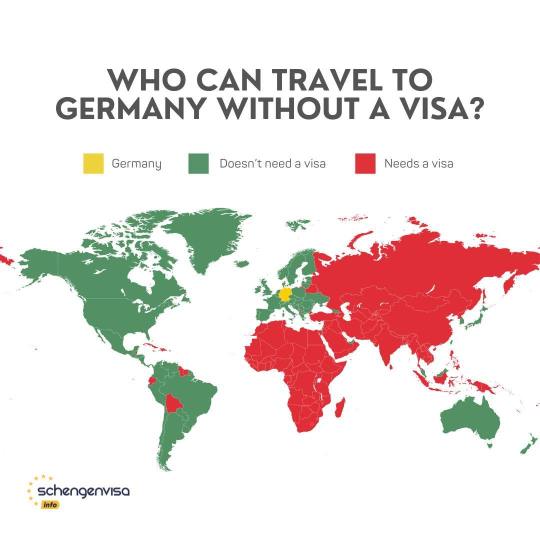
Who can travel to Germany without a visa?
by schengenvisainfo1
229 notes
·
View notes
Text
UK tightens visa rules for foreign workers
In order to reduce migration, the UK government announced a “radical” plan to ban foreign workers from bringing family members as their dependents.
The plan followed the release of official figures, with net migration rising to a record 745,000 in 2022.
UK Home Secretary James Cleverly revealed the government’s plan to tighten immigration measures. They will affect Indian and medical professionals on Health and Care visas, as they will no longer be able to bring family members with them.
For those applying for skilled worker visas through the alternative options, the salary threshold will increase from the existing £26,200 to £38,700. The same salary requirement will also apply to those seeking a family visa, which is currently set at £18,600.
Immigration policy must be fair, consistent, legal, and sustainable. In total, this package plus our reduction in student dependants will mean around 300,000 fewer people will come in future years than have come to the UK last year.
The five-point plan outlined by the minister will come into effect in the first half of 2024.
Learn more HERE

#world news#world politics#news#europe#european news#uk news#uk politics#uk property#uk government#england#london#united kingdom#rishi sunak#sunak#james cleverly#visa requirements#visa provide#visaapplication#visaapproval#visaservices#asylum seekers#migrant workers#migrants#migration#great britain#uk immigration#immigration#immigration services#immigrants#immigrant workers
1 note
·
View note
Text
Student Visa Requirements for Sri Lankan Students in the UK
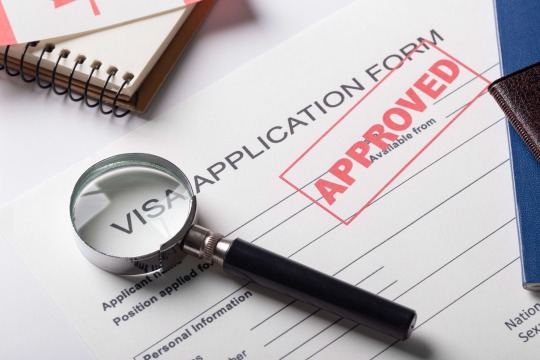
Embarking on a journey to study in the United Kingdom is a dream cherished by many Sri Lankan students. The allure of world-class education and diverse cultural experiences beckons. Yet, before you set foot on this educational odyssey, it is imperative to acquaint yourself with the intricate maze of UK student visa requirements and the labyrinthine application process. In this blog, we shall serve as your guiding light, illuminating the steps, documents, fees, and other vital details essential for your successful quest.
Visa Application Steps
1. Choose the Right Visa Type:
It is paramount to initiate your expedition with precision. Selecting the appropriate visa type is the compass that will guide you. For most students, the student visa, with its beckoning possibilities, is the key to unlock the doors of knowledge and opportunity.
2. Start Your Visa Application:
Timeliness is your shield in this journey. Initiate your application well in advance, akin to a seasoned traveler who arrives at the station well before the departure of the train.
3. Determine the Required Application Fee:
In your quest, resources are your companions. The current visa application fee, approximately LKR 81,000, is the toll you must pay to tread the path of visa acquisition.
4. Make an Appointment at Your Nearest Visa Application Centre:
Your journey's itinerary must include a stop at the Visa Application Centre (VAC). Make an appointment in advance through the official UK government website, ensuring your path is well-lit.
5. Upload All Necessary Documents:
Just like a scholar gathers their books, gather your arsenal of documents. Your admission letter, proof of funds, and English language proficiency evidence are your weapons in this academic quest.
6. Visit the Visa Application Centre:
On the appointed day, set forth to the VAC. Here, your biometrics and the scroll of your application documents are the offerings you must submit.
7. Track Your Application:
In this digital age, your application's progress is at your fingertips. The ability to track your visa application online will be your looking glass into the heart of this labyrinth.
8. Collect Your Passport:
Once the gates are opened, and your visa granted, your passport is the key to the knowledge realm. Collect it with care, bearing the visa sticker as your badge of passage.
9. Know Your Rights and Responsibilities as an International Student:
As you step onto the hallowed grounds of the United Kingdom, knowledge of your rights and responsibilities is your shield. A scholar who knows the rules is a scholar who thrives.
10. Learn About the Process for Extending Your Student Visa:
For the diligent learner, the quest does not end here. It is essential to understand how to extend your student visa, for the journey of knowledge has many chapters.
Applying for a UK Student Visa
The Tier 4 (General) student visa is your vessel on this academic expedition. To board this vessel, a Certificate of Acceptance for Studies (CAS) from your chosen institution is your ticket.
Consider Priority and Super-Priority Visa Options:
If time is of the essence, expedited options await. The UK Visas and Immigration (UKVI) offers two swift steeds:
Priority Visa: In this service, the call from UKVI shall come within 5 business days of your biometrics submission.
Super-Priority Visa: For an additional fee, the decision, like lightning, strikes within 24 hours post-biometrics. A valuable ally when time is scarce.
Ensure to consult your local visa application centre for their availability.
Documents Required
In your inventory, an array of documents awaits:
Letter of Admission from Your Institution: This is your golden ticket, your invitation to the world of academia.
Proof of Sufficient Funds: In the treasury of documents, a declaration of your financial capability must be included. It is akin to the chest of gold, revealing your ability to cover your tuition fees and living expenses.
English Language Skills Evidence: To unlock the door to English-centric education, you must present evidence of your linguistic prowess, typically in the form of IELTS or TOEFL scores.
Tuberculosis (TB) Test Report: Depending on your place of origin, this requirement may rear its head. A health requirement, it ensures the safety of the land.
Visa Application Form: Your formal request, your plea, takes the form of the Tier 4 General Student Visa application.
Valid Passport: Your passport, a key to the realm, must ensure that it remains valid for the duration of your stay.
Authenticated Transcripts: These are your scrolls of knowledge, your evidence of academic prowess, and must be submitted as part of your arsenal.
Visa Application Fee We return to the entrance, for the current visa application fee, approximately LKR 81,000, is both your toll and your threshold.
International Passports or Legitimate Travel Documents: Anchors to your identity, international passports, or other legitimate travel documents are mandatory.
Proof of Financial Ability to Cover Tuition Fees and Living Costs: You must unfurl the map of your financial kingdom, showing your capability to fund tuition and subsistence.
CAS (Confirmation of Acceptance for Studies) Reference Number: A unique identifier, your beacon of acceptance, granted by your institution.
Curriculum Vitae (CV): Your academic and professional journey summarized, the CV unfurls your life's narrative.
Work Reference (if your study gap is over 3 years): For those who've ventured beyond academics for more than three years, a work reference is the bridge to your academic renewal.
ATAS Clearance Certificate (if required): For those traversing sensitive academic terrains, such as nuclear science, the Academic Technology Approval Scheme (ATAS) certificate becomes a requisite.
Parental Consent and Proof of Guardian Relationship (if below 18): If you're under the age of 18, the mantle of parental consent and proof of guardianship shroud your academic voyage.
Non-English Documents Translation: As languages converge, ensure all documents not in English undergo the transformation by a certified translator, with the date and signature bearing witness.
Eligibility Criteria: The Gateway to Academic Sanctuary
Before you approach the gates of academic sanctuary in the UK, heed the clarion call of eligibility criteria. The UK government has established specific requirements to uphold the integrity of its student visa system. Here's what you need to consider:
Unconditional Offer Letter from a Licensed Student Sponsor: You must have received an unconditional offer letter from a UK educational institution that holds a valid sponsor license. This offer letter is the sacred scroll confirming your acceptance into your chosen course.
English Language Proficiency: You need to provide evidence of your English language proficiency. Most institutions require either an IELTS (International English Language Testing System) or TOEFL (Test of English as a Foreign Language) score. Ensure that your scores meet the specific requirements of your chosen institution.
Adequate Funds to Cover Tuition and Living Costs: To qualify for a UK student visa, you must demonstrate that you have the financial means to cover your tuition fees and living expenses. This typically includes accommodation, food, transportation, and other daily expenses. The exact financial requirement can vary depending on your chosen institution and location (London or outside London).
Understanding and fulfilling these eligibility criteria is a critical step in securing your UK student visa. It's advisable to consult with your institution and the UK Visas and Immigration (UKVI) to confirm that you meet all necessary conditions for a successful application.
Financial Requirements for UK Student Visa
International students planning to study in the UK must show that they have enough financial resources to cover their living costs. These costs typically include accommodation, food, transportation, and other daily expenses. The specific financial requirement can vary based on where you intend to study, whether it's in London or outside London.
Approximately LKR 264,000 per month (for 9 months) if you're studying in London: This estimate accounts for the higher living costs associated with studying in the UK's capital.
Approximately LKR 203,000 per month (for 9 months) if you're studying outside London: If your chosen institution is located outside London, the living costs are generally lower, and this is the estimated amount you should be prepared to demonstrate.
Please note that these financial requirements are subject to change, so it's essential to check the most recent guidelines on the official UK government website before preparing your visa application.
Demonstrating your financial ability can be accomplished through bank statements, sponsorship letters, or other financial documents that prove you have access to the required funds. Ensure that your financial evidence is accurate, up-to-date, and meets the specific requirements of your chosen educational institution and the UKVI.
Understanding and fulfilling the financial requirements is a crucial step in your UK student visa application, so it's advisable to seek guidance and double-check the current financial criteria before you commence the application process.
0 notes
Text
Freelance Visa Dubai: Eligibility, Requirements, and Costs

Navigating the Path to a Freelance Visa in Dubai
Dubai, a city renowned for its opulence, innovation, and business-friendly environment, has emerged as a hub for freelancers seeking new opportunities and a global stage for their talents. If you’re considering making Dubai your freelance playground, understanding the intricacies of the Freelance Visa is crucial. In this comprehensive 1000-word guide, we will explore the eligibility criteria, detailed requirements, and associated costs, providing you with a roadmap for your freelance journey in this vibrant metropolis.

Eligibility Criteria for a Freelance Visa in Dubai:
Before embarking on the journey to secure a Freelance Visa in Dubai, you must first determine whether you meet the eligibility criteria. Dubai’s visa policies cater to various professions and fields, ensuring that a diverse range of freelancers can thrive in the city. Here are the key factors to consider:
Profession Compatibility:
To be eligible for a Freelance Visa, your profession must align with one of the approved categories specified by the Dubai Creative Clusters Authority (DCCA). These categories encompass a wide spectrum, including media, technology, design, and more. Before proceeding, confirm that your profession falls within the approved list.
Professional Experience:
Dubai values expertise and experience. Generally, a minimum of two years of relevant experience in your chosen field is required. However, the specific experience requirements may vary depending on your profession and the free zone you choose.
Sponsorship:
Freelancers in Dubai are typically sponsored by a free zone entity. This sponsor serves as an intermediary between you and the government, facilitating your visa application. Establishing a contract with a free zone is a fundamental step in the process.
Financial Stability:
You must demonstrate financial stability to support your freelance activities in Dubai. This may involve meeting a minimum income threshold or presenting evidence of adequate financial resources to sustain your work and living expenses.
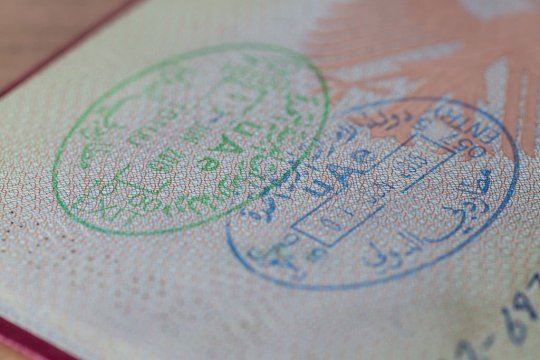
Detailed Requirements for a Freelance Visa
With a clear understanding of the eligibility criteria, it’s time to delve into the detailed requirements for obtaining a Freelance Visa in Dubai:
1- Application Form:
Begin by completing the visa application form provided by the relevant free zone authority. This form is your first step towards initiating the process, so ensure that all the information you provide is accurate and up-to-date.
2- Comprehensive Business Plan:
Prepare a detailed business plan outlining your freelance activities and objectives in Dubai. This document should not only provide insight into your business model but also highlight your potential contribution to the local economy.
3- Portfolio Showcase:
A robust portfolio is often the key to impressing authorities. Compile a comprehensive portfolio showcasing your previous work, projects, and achievements in your field. A strong portfolio can significantly enhance your application and demonstrate your capabilities to potential clients.
4- Health Insurance:
Health insurance is mandatory in Dubai, and your Freelance Visa application will require proof of compliant health insurance coverage. Many free zones offer health insurance packages tailored to freelancers, simplifying this requirement.
5- Passport Copies and Photographs:
Ensure you provide copies of your passport, along with recent passport-sized photographs as part of your application.
6- Educational Certificates:
Submit copies of your educational certificates and any relevant professional certifications that support your qualifications in your chosen field.
7- No Objection Certificate (NOC):
If you are currently employed in the UAE, obtaining a No Objection Certificate (NOC) from your current employer is essential. This NOC confirms that your employer does not object to you pursuing freelance work in Dubai.
8- Costs Associated with a Freelance Visa:
Understanding the financial aspect of obtaining a Freelance Visa in Dubai is critical for planning your freelance venture. Costs can vary depending on several factors, such as the chosen free zone and the duration of your visa. Calculate your visa cost.
Here is a breakdown of the expenses you can expect:
1- License Fees:
License fees are a fundamental expense, covering the issuance of your freelance license. The cost varies depending on the free zone you choose and the specific services you intend to provide. Generally, these fees range from AED 5,000 to AED 20,000 or more.
2- Visa Application Fees:
The visa application fee is another vital component of the process. It can vary from AED 1,500 to AED 5,000, depending on your chosen free zone and the duration of the visa.
3- Health Insurance Costs:
The cost of health insurance can vary based on your chosen coverage plan and your age. It’s essential to factor in this mandatory expense when budgeting for your Freelance Visa.
4- Miscellaneous Expenses:
Be prepared for additional expenses, including document attestation and legal consultation fees. These costs can add up, so it’s advisable to research and plan accordingly.
5- Visa Renewal Costs:
Keep in mind that freelance visas in Dubai are typically issued for one to three years. When your visa is set to expire, you will need to renew it, incurring renewal fees. Be sure to budget for these costs in your long-term financial plan.
Conclusion:
Securing a Freelance Visa in Dubai can be the gateway to a world of opportunities for freelancers looking to establish themselves in a city known for its dynamic business landscape. By thoroughly understanding the eligibility criteria, meeting detailed requirements, and budgeting for associated costs, you can embark on your freelance journey with confidence.
To ensure a smooth process, consult with the relevant free zone authority or seek legal advice to confirm that you meet all the specific requirements for your chosen profession and selected free zone. Dubai’s thriving freelance community awaits, and with the right preparation, you can become an integral part of it, contributing your skills and expertise to this global city’s dynamic and diverse economy.
#dubai#dubai freelance visa#dubai visa cost#freelance visa cost#visa cost calculator#dubai visa cost calculator#freelance visa cost#cost calculator#visa requirements#freelance visa requirements#dubai visa requirements
0 notes
Text

From Rejection to Acceptance: How VisaZone Helped me Secure my UAE Visazone
#visitdubai#visitvisa#familyvisa#VISA#partnervisa#employmentvisa#FamilyVisadubai#familyvisarenewal#touristvisa#uaevisa#uaevisitvisa#uaevisaservices#DubaiVisaServices#dubaivisaonline#visaprocessing#canadavisa#immigration#europe
#australia visa#visa requirements#visaservices#visaconsultants#visaapplication#visaapproval#visa status#visa services in dubai#visa restrictions#visa processing
1 note
·
View note
